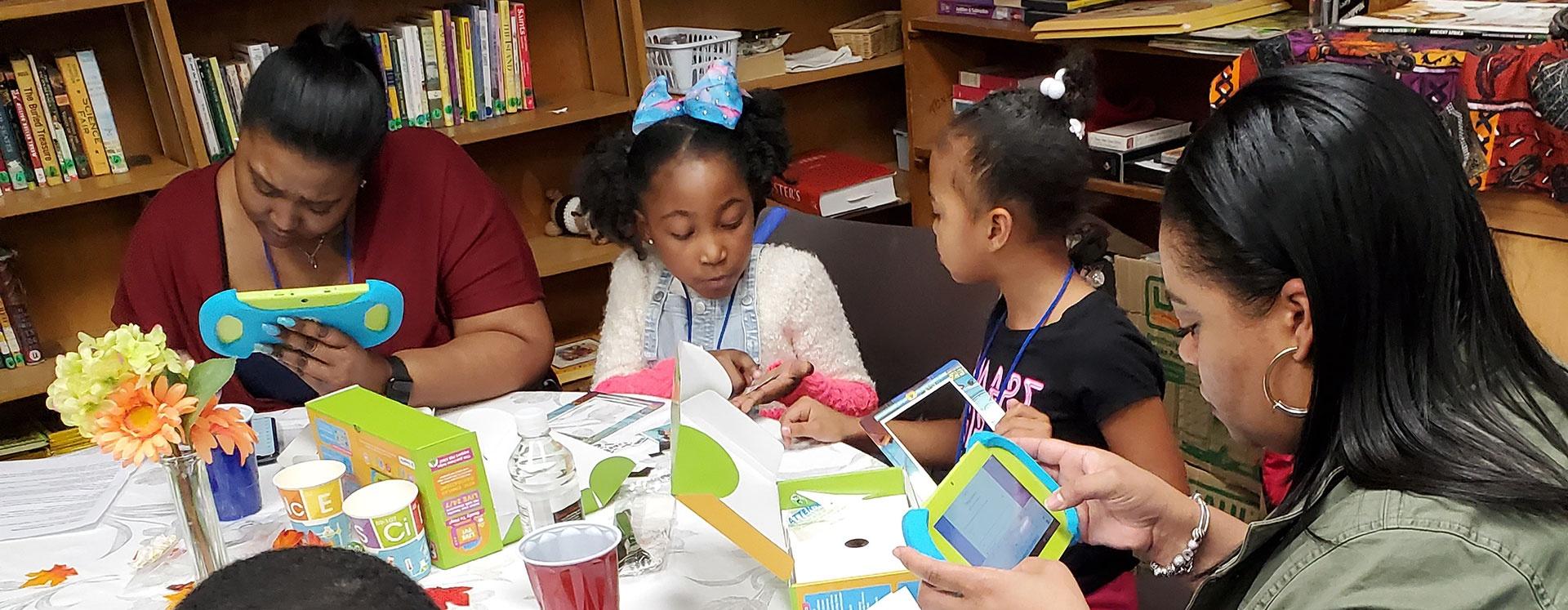Personally, parenting is the most fulfilling job I have ever had. Parenting has various challenges, and it's not always easy, but a strong parent-child relationship can create better futures for children. I believe a child’s first and most important teachers are their parents. We want what's best for them, especially their education.
Supporting your child’s learning at home is just as important as the learning that happens at school. It’s also important to work with teachers to better our children. Growing up, I didn't have the same opportunity our children have now when it comes to support and their education. When we’re involved in our child(ren)’s schools, you build a strong parent-child relationship that can lead to more confident social behavior and problem-solving skills.
Having a Routine
Many of us don’t know what further learning opportunities are available to educate our children at home. Working as a team with your child(ren)’s teachers will raise the bar high for them to succeed.
Routines are beneficial to any child and will help them thrive on a regular basis. I had no choice but to develop a strong daily routine for my son, who’s on the Autism Spectrum Disorder. I learned that once I found a schedule that worked for him, it made it easier for me to introduce my daughters to a similar routine. Having a specific time for a place and activity in your home makes it easier for children to focus. I like to avoid any last-minute rush in the morning (and especially in the evening), so setting times for dinner, screen time, and reading is a must for us.
Offering choices to children at home helps with their routine and it can help them succeed at home and school. Try to incorporate as many choices into their lessons as possible, because it teaches them confidence, responsible decision-making, and focus. For example, I always let my kids pick the order of their homework assignments, especially if one is harder than another.
How Do We Make Learning Fun?
Having fun is something my kids love to do, so we’ve incorporated it into their learning. Having a positive mindset about learning will help them to be successful. When you make learning engaging and fun, a child is more willing to participate and take risks. There are so many opportunities to practice and apply fun to our child(ren)’s learning experience at home, which will enable them to be more successful at school.
Literacy (reading) is a huge part of our everyday life, so when it's time for grocery shopping, I write out a list of items and have a scavenger hunt. Instead of using my debit card to pay, I use cash so my children can help count out how much money is needed. As another example, every child loves watching television, especially since social media has taken over. So, I’ve downloaded the PBS KIDS App to my children’s devices, which helps me access thousands of free educational games and videos in our home or anywhere we go. The great thing about the app is that it’s still a fun way of learning for my children. It has a range of topics including science, reading, math, social and emotional topics, and many more. Even better, when my kids watch a show or a movie, I’ll sometimes add subtitles for them to read along (great idea, huh?).
Keeping children engaged and motivated can be very challenging for parents and even the best of teachers. I believe it's important for children to be aware of learning strategies that are both effective and fun, which will give them the confidence to learn and be successful in school.
The PBS KIDS app is available across devices, including iPhones, iPads, iPods, Androids, and more.
This Week’s Blog Questions
We interviewed Ellicia Lanier, founder/executive director of Urban Sprouts Child Development Center in University City, MO, for help in answering the following questions.
1. How important is making learning fun and beneficial to a child?
Life is the ultimate learning experience, and shouldn't life be fun? Parents have an incredible opportunity to maximize their time with their children and make it playful. Everyday moments can turn into playful, joyful learning opportunities. Things as simple as talking about what children see in the sky as they walk down the street or ride in the car. It is in those simple moments that children can find joy and retain what they have learned about the world around them.
2. What makes a child successful in life, and how can parents support their child at home?
Confidence is key! We want our children to know their stuff. When children are given opportunities to share their intelligence, be thoughtful, all and think critically, they become confident about their learning.
3. What can parents do to be more helpful?
Let their children rule the roost! Let them lead the way, ask questions, pose theories, and be decision makers.
For more learning resources, visit the Nine PBS Educator and Caregiver Toolkit. You can also visit PBS LearningMedia to find even more fun ways to learn with your kids at home.
Please feel free to contact me and share your ideas.
Fatama Moorer, Parent Engagement Manager, Nine PBS
Office: (314) 512-9020
Cell: (314) 332-9613
Email: fmoorer@ninepbs.org
About Fatama
Fatama engages parents and partners in Nine PBS’s early education initiative, providing resources in child development for families in need. In addition, she creates early learning content, serves as a community-based intermediary for families, facilitates and coordinates Ready to Learn (RTL) experiences, and provides partner training. Previously, Fatama served her community by providing families with a community wellness shop. She has served on the Parent Advisory Board of Saint Louis Crisis Nursery, the FLOURISH Community Leader’s Cabinet, and the Generate Health Board. She holds several certificates in early learning, including Early Warning Signs of Learning Disabilities, the PBS Virtual Professional Learning Series, and Parent Advocacy. She loves hiking, yoga, and spending time with her kids.



